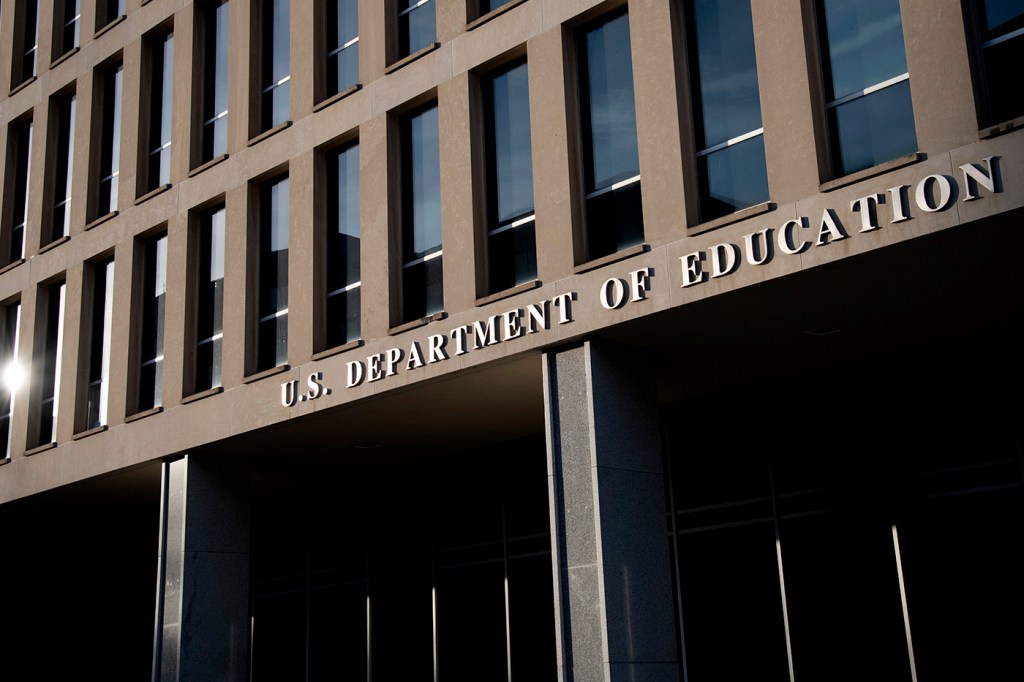Eliminating the Department of Education would endanger America’s most vulnerable students, Northeastern experts say
While President-elect Trump says the DOE is a waste of taxpayer money, proponents of the agency say it provides necessary services and oversight.

If the Department of Education is eliminated, as President-elect Donald Trump has promised to do, some public school districts and students would be minimally impacted.
Meanwhile, according to Northeastern University experts, many K-12 districts and students could be devastated — especially those in low-income communities and households.
While eliminating the DOE would require congressional action, and Trump has not been clear on how current education spending would be affected, public schools received an average of 13% of their funding from the federal government in 2022. The DOE helps low-income school districts, enforces civil rights and dispenses about $125 billion in college student aid, including Pell grants and student loans.
What and who would be most affected by the elimination of the DOE?
Special education programs, students from low-income families, English language learners and students with disabilities, according to Tomás Galguera, a Northeastern education professor and chair of the Education Department on the university’s Oakland campus.
Galguera predicts, if Trump succeeds, it could most impact those who voted for him.
“This might turn into a Brexit moment,” he says, referring to the U.K.’s 2016 referendum to leave the European Union. “People from small rural districts who voted for Trump might later on say, ‘Can we do a repeat?’”
How are public schools funded?
In every state, public schools are funded through a combination of local, state and federal taxes. Most local tax revenue comes from property taxes, so in wealthier areas, schools usually get more local money.
The role of the Department of Education –– which has about 4,400 employees and a budget of about $238 billion –– is to level the playing field. For example, Title 1 funds supplement local and state budgets to support schools that serve low-income students. This money pays for things like free and reduced-price lunches.
The other major role the DOE plays is oversight, Northeastern education professor Dana Wright says. Title IX, for example, protects students from sexual harassment or from being excluded from a program or funding based on sex.
If the department were to be abolished, Wright says, those protections could disappear or become inconsistent.
“Federal oversight and enforcement play a critical role,” she says. “Those protections could collapse, leaving students vulnerable to unchecked discrimination.”
In eliminating the DOE, Trump has pledged to leave all education policy-making and decision-making up to the states. On Tuesday, he tapped former Cabinet member Linda McMahon to take over the department — and carry out its dismantling.
What happened in 2018?
Trump says the DOE, established in 1979 under President Jimmy Carter, is an example of government overreach and a waste of taxpayer money. He claims the U.S. spends three times more on education than other nations yet ranks only 12th globally.
Trump also promised to eliminate the DOE in his first term. In 2018, he proposed merging the departments of education and labor into the Department of Education and the Workforce, but that idea died in the Senate.
Editor’s Picks
If he’s successful this time, Galguego says, it could impact multilingual teachers and learners. A former multilingual teacher in Oakland Unified School District, Galguego’s position was partially funded through Title VI.
“Special populations that need federal funds are one area that will feel the impact immediately,” Galguego says. “All of these programs that are for students in underserved populations will be impacted.”
Since special education programs also receive federal funds — and students come from all socio-economic backgrounds — Galguego says it’s possible that parents from more affluent communities will push back.
The same backlash, he says, could occur among voters who benefit from Title I funds.
“I wonder whether some Republicans are going to be up in arms,” Galguego says. “When you break this down to its granular implications, that’s not what we voted for.”
Other roles the DOE plays
Other roles the federal government plays in public education, Wright says, include LGBTQ protections, funds for teacher training and the development of national academic standards.
On top of these, she says, the federal government collects data about student performance that is used to inform policy and instruction.
“How will teachers know they are using evidence-based tools to reach their students?” Wright asks.
Altogether, eliminating the Department of Education suggests that quality public education isn’t a high priority for the incoming administration, says Jaci Urbani, a Northeastern associate professor of education on the Oakland campus.
She worries that long-standing efforts to develop a more diverse teacher workforce will be lost if the DOE is dissolved.
“There are going to be a lot of people who might have wanted to go into education who will feel threatened or discouraged,” she says. “Which is unfortunate. We have a very white teaching population, and it will stay that way.”










